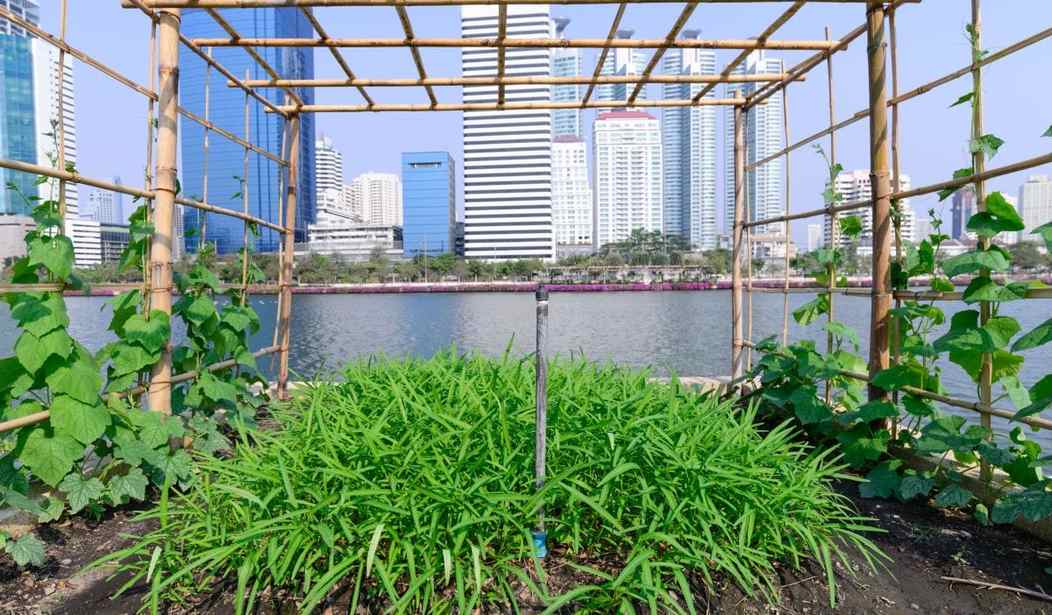It’s hard to tell if the socialist paradise of Venezuela is melting down, blowing up, or disappearing in a blizzard of paper money. The country has triple-digit inflation, massive food shortages, water shortages, electrical shortages, a thriving black market, and a population desperate for relief. Corpses are exploding in hospitals as they wait to be taken to the morgue. Those who have jobs work only two days a week.
To address the problem of food shortages, the government came up with the perfect socialist scheme: have city dwellers grow food to feed the masses.
Some Venezuelan city dwellers are trying to grow their own produce to offset the country’s severe shortages following socialist President Nicolas Maduro‘s calls for “food sovereignty.”
But in a country where families are going hungry as a result of government mismanagement and sky-high inflation, many view the “Great Agro-Venezuela Mission” with skepticism.
“Agriculture shouldn’t be a solution” to the country’s shortages, said former landowner Iraima Pacheco de Leandro, 54, a well-to-do government opponent who lives in Caracas.
Critics have taken to social media to accuse the government of downplaying the country’s critical situation, and ridicule Maduro for trying to solve Venezuela’s dire food crisis through getting urbanites to farm small plots of land.
The Venezuelans are a resilient people, able to make fun of their leaders even in desperate times:
“Urban Farming in Venezuela. Thanks to @Nicolas Maduro” read one tweet accompanied by a photograph of a man and a dog sifting through trash, a common sight in Caracas as food supplies dwindle and black market prices soar.
“BBC Venezuela report has Chavistas explaining how they’re going to feed people, grow medicine, through urban farming. No, really,” mocked another Twitter user.
The plan was to have city residents grow 12,000 square kilometers worth of food. But Venezuelans had other ideas.
When the project was presented in February, the newly created Ministry of Urban Agriculture announced that 12,000 square kilometers – about 4,600 square miles – would be planted in the first 100 days. The government promised to invest $300,000 in seeds, equipment and educational projects, and to help with logistics.
The government urged citizens to plant in every available space – private terraces, communal areas, jails and schools, among other sites – but did not itself provide the land.
Eight months into the project, only 21 square kilometers (about 8 square miles) of land have been cultivated, according to the ministry.
“How are you going to tell someone with no space for a plot to grow [their own food]?” asked de Leandro, whose family-owned farm was expropriated, like many other businesses, under former president Hugo Chavez‘s nationalization program.
Some Venezuelans try to look on the bright side of the experiment: Producing their own food can reduce the time spent on the streets of Caracas, where crime is skyrocketing. For de Leandro, who was once kidnapped for ransom, this is a comforting thought. She grows a stunning array of vegetables on one of her terraces.
Do you think this kind of thing deters the socialist wannabes in the U.S.? Not in the slightest. They will point out that they are smarter and more competent managers so, of course, they will succeed where Venezuela — and every other socialist and communist experiment in world history — has failed.








Join the conversation as a VIP Member